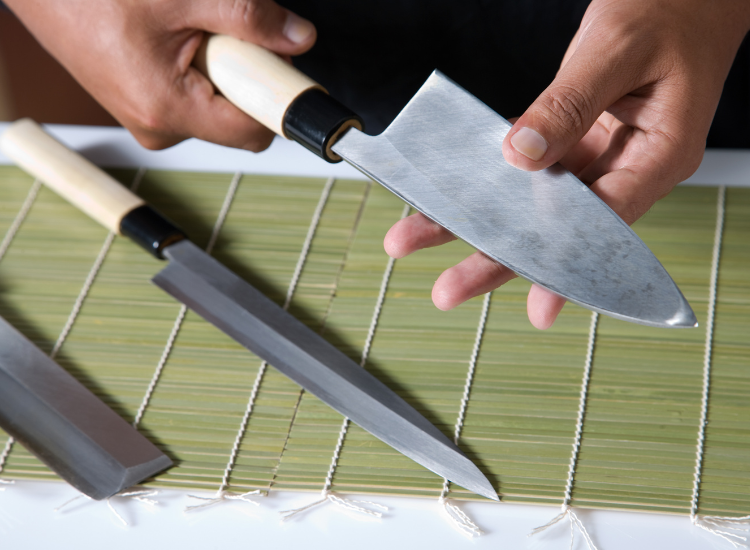The Deba knife, a traditional Japanese kitchen knife, is primarily used for cutting fish and poultry. Proper maintenance is crucial to preserve its functionality and longevity. Here’s how to care for your Deba knife:
Cleaning:
Always hand wash your Deba knife immediately after use with warm water and a mild detergent. Avoid using the dishwasher, as the harsh chemicals and heat can damage the blade and handle.
Drying:
Thoroughly dry the knife with a soft, clean cloth after washing. Ensure the blade and handle are completely dry to prevent rust and deterioration, especially if the knife is made of high-carbon steel.
Sharpening:
Sharpen your Deba knife regularly using a whetstone. Start with a coarse grit to grind away any nicks or unevenness and finish with a fine grit to hone the edge. Sharpening techniques are crucial; maintain the correct angle (usually about 15-20 degrees) and use consistent strokes on each side of the blade.
Storage:
Store your Deba knife in a dry, safe place. A knife block, magnetic strip, or protective sheath can prevent the blade from becoming dull or damaged. Avoid storing the knife in a drawer where it can come into contact with other utensils and get damaged.
Rust Prevention:
If your Deba knife is made of carbon steel, it’s prone to rusting. To prevent rust, apply a thin layer of food-grade mineral oil to the blade after each use, especially if you live in a humid environment.
Professional Inspection:
Even with regular home maintenance, consider having your Deba knife professionally inspected and sharpened at least once a year. A professional can address any issues like blade misalignment or significant wear and tear.
Handling and Usage:
Always use a proper cutting board (preferably wood or plastic) to protect the blade’s edge. Avoid cutting on hard surfaces like glass or metal, which can dull or damage the knife. Also, use the knife for its intended purpose; Deba knives are designed for cutting fish and soft meats, not for chopping bones or frozen foods.
Avoiding Damage:
Do not use the Deba knife for tasks like prying or twisting, as this can damage the blade or handle. The Deba is designed for precise, downward cuts and should not be used as a general utility knife.
Proper maintenance of your Deba knife will ensure that it remains sharp, safe, and functional for years to come. Regular care not only preserves the knife’s quality but also enhances your culinary experience, allowing for precise and efficient cutting every time.

